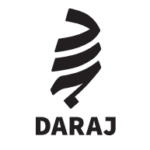Things have reached the point of terror when walking in the streets. Members of the LGBTQ+ community have told us about the police using drug-related charges to arrest and threaten those they believe are members of the community as a legal pretext for intimidation, pushing individuals who do not conform to traditional gender notions to disappear from public spaces.
This campaign has reached the point of hunting for articles and texts in the journalistic archives that discuss gender diversity and point to safe spaces, with the aim of closing them down and intimidating those behind them. In some way, journalism is being used as “evidence for prosecution,” as it continues to be subjected to policies of intimidation. Several authors have reached out to us at Daraj, asking us to remove articles they wrote years ago for fear that the new watching eye, this time armed with a knife and bullets, might discover them.
We find ourselves facing a professional dilemma: should we preserve our archive despite its exploitation by some as a means of condemnation and targeting? Or should we hide texts and articles to protect their authors from the violence and persecution they may face?
We do not push anyone towards a “martyrdom for identity,” and we do not call on anyone to risk their lives for the sake of their identity. Everyone is capable of assessing their position and their ability to confront. We write and publish content, are committed to professional standards, and always keep the door open for anyone who has a story to share, while also making sure to protect the author and their identity depending on the situation. As for the archive, anyone who feels threatened or may be subject to persecution can contact us to find an appropriate method that prevents Daraj or any other platform from becoming a means of targeting the LGBTQ+ community.
We are living through a real crisis in the region, where the crackdown on civil society and the press has taken various forms: the word “gender” has been banned in Iraq, “soldiers” are abusing safe spaces in Lebanon, silence is being forced on people in Syria and Jordan, and reports of persecutions and raids targeting trans individuals in Egypt continue to reach us daily. On the other hand, we see the Prime Minister of Qatar calling for “preserving customs and traditions,” and Ibrahim Raisi, at the United Nations, calling for the defense of the “family and its values.” We would also like to note Iran and its political power here as well, because its militias control three Arab capitals – Baghdad, Damascus, and Beirut – where religious conservatism is rising amidst civil wars.
They want to silence voices, erase history, and delete safe and hopeful spaces that some have created out of fear for “values” and political customs. But those who truly want to “cleanse” the region should look at its history, which is filled with stories that have been confined to heritage studies and stripped of their generative power to affect reality. We are not just talking about a problem concerning our history and how it is portrayed: the obsession with the clothes and bodies of others reveals a real, and clear interconnected problem. We cannot blame the “masses” for it, but rather poverty, oppression, corruption, and political repression, which have turned targeting vulnerable communities into a means of venting and asserting “authority” in our region. Those who have no authority over their wealth and opinions target anyone who dares to be different in appearance or voice.
Our duty as journalists and advocates for freedoms in the face of this campaign is to raise our voices in criticism, highlight the flaws and violence, and preserve our journalistic profession. We do this in the face of those who fear the rainbow and any spectrum of colors. This fear, which organized media campaigns are fueling, was clearly articulated by Ziad Makary, the Lebanese Minister of Information, who said, “The issue of sexual deviation is a concern for every household and family.” But, Mr. Minister, what about corruption? Hunger? High prices? Justice for the victims of the port explosion? Doesn’t anyone care about all that?






